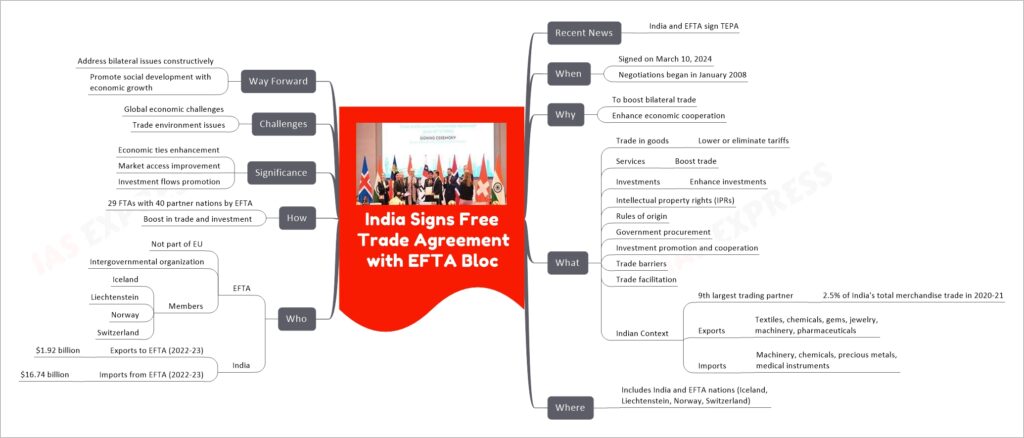India Signs Free Trade Agreement with EFTA Bloc

The free trade agreement between India and the EFTA (European Free Trade Association) bloc, specifically with Iceland, Liechtenstein, Norway, and Switzerland, marks a significant step towards enhancing bilateral trade and economic cooperation between India and these European countries. This agreement, officially known as the Trade and Economic Partnership Agreement (TEPA), aims to reduce tariffs and non-tariff barriers, promote investments, and increase market access for goods and services. The agreement covers a wide range of sectors including trade in goods and services, investment promotion, intellectual property rights, and more, aiming to boost economic ties and mutual investments. EFTA, while not part of the EU, serves as an important trade bloc, and the agreement is seen as a way to enhance India’s trade relations with these countries, ultimately fostering economic growth and job creation in both regions .

